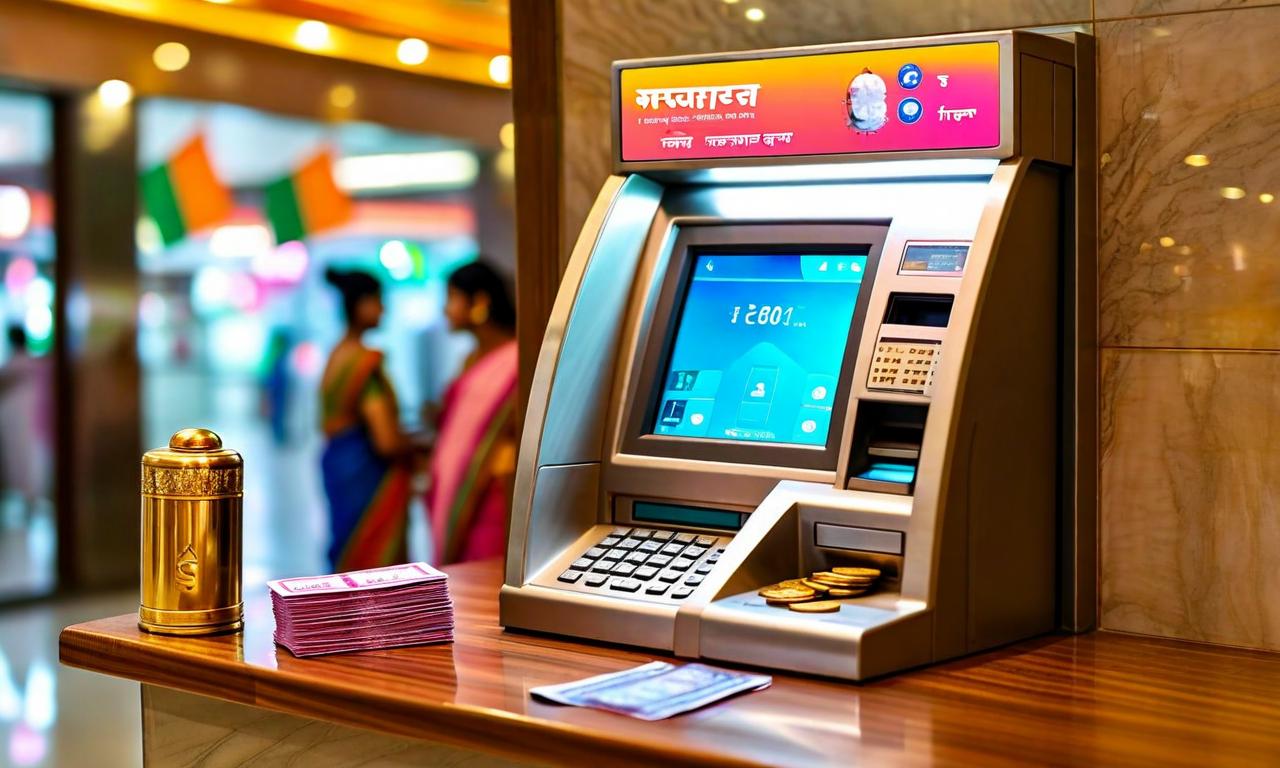ICICI Bank Hikes Minimum Balance for New Savings Accounts to ₹50,000
ICICI Bank has increased the minimum balance requirement for new savings accounts from ₹10,000 to ₹50,000. This fivefold increase contrasts with public sector banks' policies and has sparked discussions about financial inclusion. The move is driven by pressure on bank margins, rising technology costs, and customer migration to mutual funds. Critics argue this could exclude a significant portion of the population from banking services. The change applies only to new accounts, with existing customers unaffected. Other private banks may consider similar moves, while some, like Kotak Bank, have indicated they won't implement such changes.

*this image is generated using AI for illustrative purposes only.
ICICI Bank, one of India's leading private sector banks, has made a significant change to its savings account policy, raising eyebrows in the banking sector and sparking discussions about financial inclusion.
New Minimum Balance Requirement
ICICI Bank has increased the minimum balance requirement for new savings accounts from ₹10,000 to ₹50,000. This fivefold increase marks a strategic shift in the bank's approach, seemingly targeting higher-income customers.
Contrast with Public Sector Banks
This move stands in stark contrast to the policies of public sector banks, which typically maintain modest or no minimum balance requirements for their savings accounts. The divergence in strategies highlights the different approaches taken by private and public sector banks in India's competitive banking landscape.
Driving Factors
Several factors appear to be driving this decision:
- Pressure on bank margins
- Rising technology costs
- Customer migration from fixed deposits to mutual funds
These challenges are prompting private banks to reassess their strategies and focus on more profitable customer segments.
Criticism and Concerns
The move has not been without criticism. Jay Kotak, associated with Kotak Bank, voiced concerns about the new requirement:
- 90% of Indians earn less than ₹25,000 monthly
- The new ₹50,000 minimum balance is nearly equivalent to two months' income for most citizens
- This raises questions about financial inclusion and accessibility of banking services
Industry Implications
The banking sector is closely watching this development:
- Other private banks like HDFC and Axis may consider similar moves
- However, Kotak Bank has indicated it won't implement such changes
Regulatory Compliance
Despite the increase, ICICI Bank continues to adhere to regulatory requirements:
- The bank still offers basic savings accounts for small savers with annual credits below ₹1 lakh, as per RBI guidelines
- The Reserve Bank of India (RBI) has not set caps on minimum balance requirements
Limited Scope of Implementation
It's important to note that ICICI Bank is applying this new rule only to prospective accounts. Existing account holders will not be affected by this change.
This move by ICICI Bank reflects the evolving dynamics in India's banking sector, balancing profitability with the need for financial inclusion. As the industry continues to adapt to changing economic conditions and customer behaviors, it remains to be seen how other banks will respond and what impact this will have on the broader financial landscape in India.



























